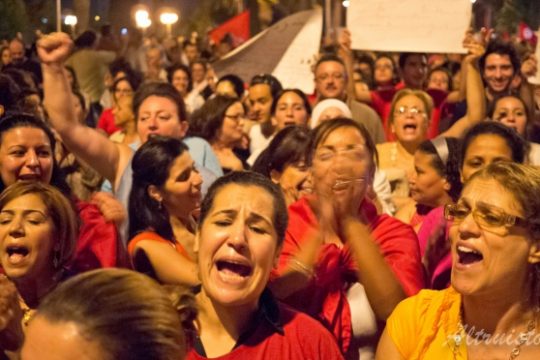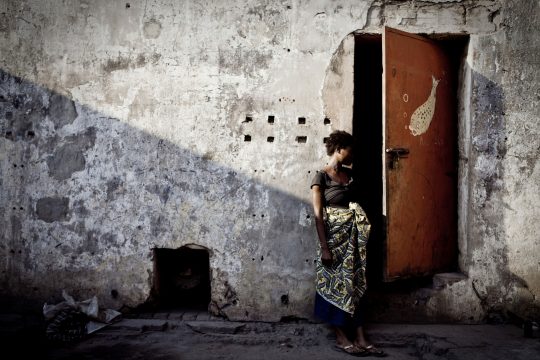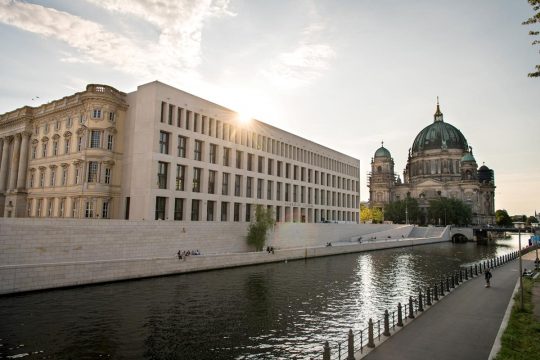Thousands of acts of sexual violence, mostly against women, are documented each year as armed conflict continues to escalate. Yet even if the victims escape, social stigma can be one of the worst consequences they suffer afterwards. Previous studies show the many and often unexpected effects of stigma on women rape victims. Now a new report by the Harvard Humanitarian Initiative (HHI) looks at how men can also become a target of shame and ridicule should their wife or relative survive a crime of sexual violence. In this opinion piece, Jocelyn Kelly of HHI and Dutch trauma researcher Kimberley Anderson argue that it may be time to start including the men in the dialogue.
On May 18, the New York Times published an article documenting one young girl’s escape to a government camp in North Eastern Nigeria. Her abduction by Boko Haram marked the start of a series of horrors; she was held captive, forced to be the ‘wife’ of an insurgent, expected to fulfil his every request. However, her escape from captivity did not mark the end of her ordeal. Arriving back in her home, she was met by stares, whispers and suspicion from local residents. Her child, born after being raped by her insurgent ‘husband’ was concealed from view, but she knew she would soon face questions and judgement.
Thousands of acts of sexual violence are documented each year as armed conflict continues to escalate. We know from research and media reports that sexual violence-related stigmatisation can, in large part, be attributed to the deep-rooted beliefs and traditions regarding exclusivity in sexuality and strictly defined gender roles. The social stigmatisation of survivors of sexual violence is a common feature of conflict zones around the world. Even long after an attack, survivors live with feelings of shame, dishonour and humiliation, and sometimes with children born as a result of rape. Stories of sexual slavery, subjugation and psychological control from groups like Boko Haram and Isis are rife in today’s news.
Those affected by armed conflict, where rape is a commonly used ‘weapon of war’, face an ever more complex web of challenges to their traditional customs and community identity when women return home from abduction by armed groups. Have these women been sent to spread disease? Are they rebels themselves? Will their children grow up to behave like the soldiers who fathered them? There is fear, scepticism and hostility in abundance.
In order to address the needs of survivors, their families and communities in the process of healing, we must draw on lessons learned from past conflicts. Studies done by the Harvard Humanitarian Initiative in eastern Democratic Republic of the Congo and in areas affected by the Lord’s Resistance Army highlight the importance of involving a woman’s family and community in programs aimed at healing after rape.
Men can be targets too
Previous studies underscore the myriad, and sometimes unexpected or invisible, consequences of rape. A woman might not be able to go to church or the market for fear of being ridiculed, and she might be ostracised from groups that previously gave critically important social support. ‘Destruction’ has been used by many victims to define sexual violence, such are the far-reaching consequences. Some women report that experiences of social pressure and shame are often as traumatic as the attack itself; some would prefer to be killed.
Much lesser known, but of increasing significance, is the extent to which men are also a target of shame and ridicule should their wife or relative survive a crime of sexual violence. Typical gender roles dictate that as head of the household, it is the responsibility of the man to protect the women in his family from life-threatening attacks. Being the subject of a sexual violence-related crime suggests that a man has ‘failed’ this role and is deemed useless and weak; his identity is challenged to the point that the only option may be to reject a female rape survivor from his household. Forthcoming evidence from the Harvard Humanitarian Initiative seeks to unravel the intricacies of this decision to reject; the challenging choice a man must make following the rape of his wife. The fear of the spread of disease, violations of marriage and fidelity and bearing witness to rape, coupled with the love of their wife, the need for her economic contribution and caretaking of children, contribute to both rejection and acceptance of female rape survivors in varying degrees.
‘Gendered responses’ to the treatment of rape victims and their families, changing policy for those affected or addressing deep-seated community beliefs have often excluded men from this dialogue. Labelling them as the source of stigmatisation incites blame in many situations, and is unhelpful in the long-term. Sensitising men to the repercussions of rape, many of which affect them directly and personally, would be a poignant point of action for justice and healing. Systemic treatment is as useful for the well-being of women as it is of their husbands, families and community.
Jocelyn Kelly is Director of the Harvard Humanitarian Initiative’s Women in War program, where she designs and implements projects to examine issues relating to gender, peace, and security in fragile states.
Kimberley Anderson is an Early Stage Researcher based at Psychotraumacentrum Zuid Nederland. Her PhD is funded by the European Union’s Horizon 2020 research and innovation programme: Children Born of War. Her research focus is refugee women and their children born of sexual violence.








